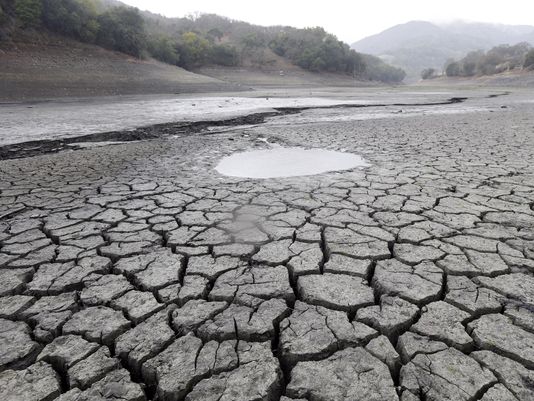There is good news for some drought-stricken California farmers as a result of recent rain and snow that the state experienced: on Friday, the Associated Press reports, the Department of Water Resources said it will step up the amount of water it doles out.
The Department’s prior allotment had been 0% of what water districts requested; now that will be raised to 5% if farms are part of California’s State Water Project. The State Water Project serves 29 public agencies that dole out water to roughly 25 million Californians.
If farmers are lucky enough to live north of the Sacramento-San Joaquin Delta, they will receive an additional increase: the U.S. Bureau of Reclamation will raise their allotment from what is now 40% to 75% of what water agencies in the Sacramento Valley have requested.
On the other hand, for the farmers in the Central Valley, some of whom include those who receive their federal water from the Westlands Water District, the water allotment will stay at zero.
Gayle Holman, a Westlands spokeswoman, told the AP that the farmers will have to glean their water from wells. The only benefit for those farmers, according to Holman, is that the increased water to the north will make water more available for purchase for the Central Valley farmers, though they will still have to pay high prices.
But Mark Cowin, director of the California Department of Water Resources, ignored the disparity among the state’s farmers, telling reporters: “This is all a bit of good news in an otherwise bleak water year.”
Jim Beck, manager of the Kern County Water Agency in Bakersfield, which transfers 90% of its water to local farmers, was happy with the news, according to the AP, explaining that to get 5% instead of zero was huge. He said, “Our growers are really turning over every rock to find every bit of water. This really changes things.”
Brian Stranko of the Nature Conservancy was delighted, telling the AP that because of the precipitation, which triggered the state’s decision to eschew building rock barriers on the Delta, salmon could continue migrating inland from the sea.
The state junked the plans to build the rock barriers immediately, which would have prevented saltwater intrusion.
Photo: Marcio Jose Sanchez/AP

COMMENTS
Please let us know if you're having issues with commenting.